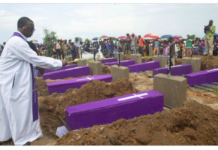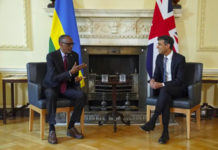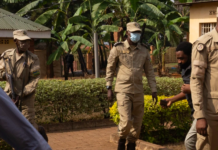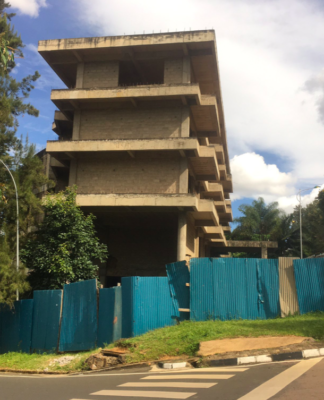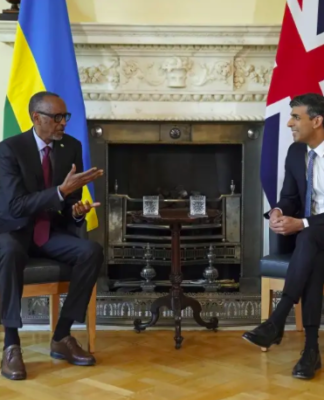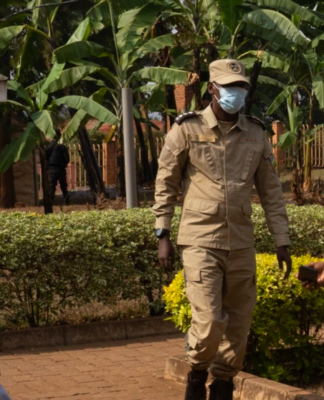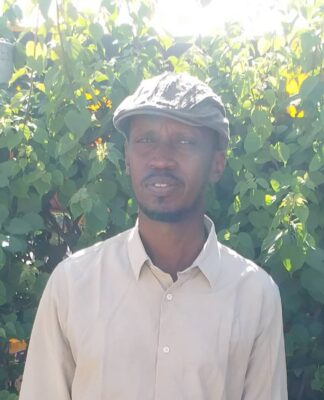By David Himbara
Burundi’s Ndayishimiye has reaffirmed commitment to Vision 2025 whose purpose is to transform Burundi into a peaceful, stable and prosperous nation. There is one major problem, however. Burundian leaders do not provide a detailed execution plan for Vision 2025. As is often stated, a vision without execution is just hallucination. A comprehensive execution plan on who will do what, when, and how the results will be robustly measured is the answer.

On February 26, 2021, Burundi’s President Évariste Ndayishimiye appeared to reaffirm the ruling party’s commitment to Burundi Vision 2025 whose purpose is to transform Burundi into a peaceful, stable, and prosperous nation by 2025. President Ndayishimiye categorically stated that “the Government of Burundi is determined to concretely improve the living conditions of Burundians” and that his government aims “to facilitate access to drinking water for the entire population, in all municipalities by 2025.” The President’s statement is clearly in line with Burundi Vision 2025, through which Burundi is to be transformed via 8 pillars, namely: 1) Good Governance and Capacity/Building for the State; 2) Human Capital; 3) Economic Growth and the Fight Against Poverty; 4) Regional Integration; 5) Demographics; 6) Social Cohesion; 7) Regional Planning and Urbanization; and 8) Partnership. There is one major problem, however. Burundian leaders do not provide a detailed implementation plan of how Burundi Vision 2025 will become a reality. As is often stated, a vision without execution is just hallucination. Burundian leaders ought to ensure that the Burundian Vision 2025 is not hallucination by providing a comprehensive execution plan.
What needs to be done to turn Burundi Vision 2025 into reality
Burundi Vision 2025 is a 104 page document but has only 1 page devoted to the implementation plan of the vision. This is a catastrophic flaw that turns Burundi Vision 2025 into a hallucination exercise. A great national development vision must be clear, concise and understandable to all national stakeholders and citizens at large. It must be inspiring and motivational to those that are responsible for executing it. But above all, to move from hallucination to reality, a great vision requires hard-nosed execution, which starts with a plan. The plan sets the stage with strategy (the why), then lays out the objectives (the what), and then the required steps and actions (the how), to be carried out by the respective teams (the who), and the timeframe in which the actions should be accomplished (the when).
It is vital for Burundian leaders to understand that, like the vision statements, the execution plan for turning Burundi Vision 2025 needs to be clear. Unlike the vision, the execution plan needs to be as comprehensive as possible, with a robust appreciation of the risks and challenges, and well thought-out “plan B’s” for all the major risk points or hurdles. The objectives of the execution plan must be relevant, meaningful, unambiguous and measurable.
The immediate challenge facing President Évariste Ndayishimiye implementing Vision 2025
The Burundian President needs a skilled team in his office. No leader can transform a country on his own without a supportive first-rate strategic team. That is why President Ndayishimiye needs in his office a Strategy and Policy Unit whose purpose is to provide him with in-depth strategy advice and policy analysis on his key priorities embedded in Burundi Vision 2025. The Strategy Unit and Policy Unit would look ahead at the way Vision 2025 would be robustly implemented, and the new challenges and new ideas to address the difficulties met along the way. The Strategy and Policy Unit would have four primary roles:
- Carrying out strategy reviews and providing policy advice in accordance with the President’s policy priorities.
- Supporting government ministries, departments and agencies in developing effective strategies and policies, and helping them build their strategic capability.
- Conducting occasional strategic audits, and identifying key challenges for the Burundian government.
- Assisting in improving the ease of doing business. Burundi’s business environment is ranked 166th out of 190 countries. Burundi cannot create prosperity with such poor business environment.
Financial resources to build robust strategic capacity in countries such as Burundi exist
All major bilateral and multilateral institutions provide grants for capacity building in countries such as Burundi that are embarking on their development agenda. The African Development Bank consistently supports such efforts. The important thing for Burundi is to seek support to build its strategic capacity. In countries such Burundi emerging out of conflict, international technical teams are temporarily brought in and twinned with the national experts for two years. Once the national experts gain strategic skills and confidence, the international personnel withdraw. The hands-on method of transferring strategic skills, knowledge, and competencies is a well-known mechanism used globally which Burundi most certainly needs to quickly build its strategic capacities.
The time for Burundi to embark on its journey to prosperity is now
The time for Burundi to cash its peace dividend, map its way forward into the future, and implement its Burundi Vision 2025 with decisive determination is now. From what we have seen so far, President Ndayishimiye is pressing ahead with Burundi Vision 2025. He has categorically stated that his government “is determined to concretely improve the living conditions of Burundians” and that his government aims “to facilitate access to drinking water for the entire population, in all municipalities by 2025.” Clearly, the President has taken the initial steps toward a stable and prosperous Burundi. As the old saying goes, the pessimist complains about the wind, the optimist expects the wind to change, while the realist adjusts the sails. President Ndayishimiye appears to be a realist adjusting the sails for transporting the Burundi nation to a stable and prosperous future. Put another way, the Burundian head of state will not allow Burundi Vision 2025 to remain a hallucination exercise as opposed to becoming a powerful tool for improving lives of the people of Burundi.


